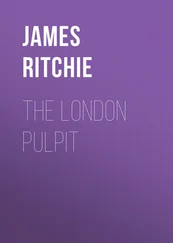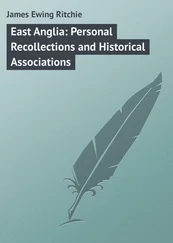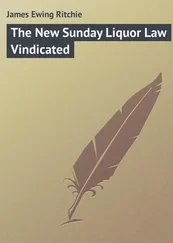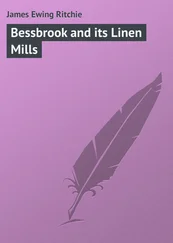James Ritchie - About London
Здесь есть возможность читать онлайн «James Ritchie - About London» — ознакомительный отрывок электронной книги совершенно бесплатно, а после прочтения отрывка купить полную версию. В некоторых случаях можно слушать аудио, скачать через торрент в формате fb2 и присутствует краткое содержание. Жанр: foreign_prose, на английском языке. Описание произведения, (предисловие) а так же отзывы посетителей доступны на портале библиотеки ЛибКат.
- Название:About London
- Автор:
- Жанр:
- Год:неизвестен
- ISBN:нет данных
- Рейтинг книги:4 / 5. Голосов: 1
-
Избранное:Добавить в избранное
- Отзывы:
-
Ваша оценка:
- 80
- 1
- 2
- 3
- 4
- 5
About London: краткое содержание, описание и аннотация
Предлагаем к чтению аннотацию, описание, краткое содержание или предисловие (зависит от того, что написал сам автор книги «About London»). Если вы не нашли необходимую информацию о книге — напишите в комментариях, мы постараемся отыскать её.
About London — читать онлайн ознакомительный отрывок
Ниже представлен текст книги, разбитый по страницам. Система сохранения места последней прочитанной страницы, позволяет с удобством читать онлайн бесплатно книгу «About London», без необходимости каждый раз заново искать на чём Вы остановились. Поставьте закладку, и сможете в любой момент перейти на страницу, на которой закончили чтение.
Интервал:
Закладка:
CHAPTER III.
ABOUT COAL
I am sitting by my sea-coal fire, and, from the clear way in which it burns, and the peculiarly pleasant warmth it seems to give out, I have every reason to believe that the thermometer is below the freezing point, that the ground is hard as iron, and that before to-morrow’s sun rises, Jack Frost will not only have lavishly strewn the earth with pearls, but have sketched fairy landscapes innumerable on my window-panes. Ah, well, it matters little to me:
“The storm without might rain and ristle,
Tam did na mind the storm a whistle.”
The respected partner of my joys and sorrows has retired to roost, far away in the nursery the maternal pledges of our affection have done ditto. Unless an amorous member of that inestimable class of public servants – the metropolitan police – be at this moment engaged in a furtive flirtation with the cook, I have no reason to believe that, beside myself, any of my limited establishment is awake. My boots are off – I have an old coat on – I have done my day’s work – I don’t owe anybody any money (the reader need not believe this) – I poke the fire – I light a cigar – and think there is nothing like a good fire after all.
I am thankful I am not in Paris now: I take down my French Pocket Dictionary, published by Orr in 1850, and cannot find the French for fire-place; I find firearms, fire-ball, fire-brand, fire-brush, fire-cross, fire-lock, but no fire-place. Ah, here it is (fire-side, foyer – substantive, masculine); but, to make quite sure, I turn to the French-English, and I turn up foyer there; and, here, I find it means, “heat, tiring-room, green-room,” and so on. Well, am I not right? there is nothing like an English fire-place after all. The Germans are not much better off than the French; the German porcelain stove, for instance, standing in the middle of the room, like a monument, and nearly filling it, is not for a second to be compared with a jolly English fire; besides, it is very dangerous, and, when the flue gets stopped is, I was going to write, as great a murderer as a medical man. Can I ever forget how when I lived in the Kirchen Strasse of a far-famed and delightful city, distant about 700 miles from where I write, how one morning I came down-stairs to have my frühstück , and how, in the very middle of my meal, I felt an uncomfortable sensation, as a gigantic Dane was reading to me a memorial he was about to address to the British government? May I tell the reader how at first I thought the document to which I have referred might have something to do with it? Will he forgive me, if I narrate how, at length, I gradually came to the conclusion that the cause was in the atmosphere, which seemed to be splitting my head, and swelling out my body to the point of bursting? can he imagine my deplorable situation when I became insensible, and when I recovered consciousness found that I had been poisoned by the fumes of charcoal, and that I should then and there have shuffled off this mortal coil, had not my Danish friend, for a wonder, lifted up his eyes from his precious document, and, seeing me go off, thrown open the window, and, in a polyglottic way, called for help? Truly, then, may I say, that, for comfort, and for safety, and for warmth, if you can have it pretty nearly all to yourself, and do one side thoroughly first before you roast the other, there is nothing like an English fireplace in the world.
Woe is me! the present generation, – a generation most assuredly wise in its own eyes, can never know what I, and others verging on forty, know – the real luxury of an English fire after travelling all night as an outside passenger on the top, say, for instance, of the Royal London and Yarmouth mail. Pardon my emotion, but I must shut my eyes, and endeavour to recall the past. It is six o’clock on a night cold as that in which I now write; I am at the ancient hostelry, now gone to the dogs, known as the White Horse, Fetter Lane, on the top of the mail aforesaid. The many-caped coachman, has clambered up into his seat; I sit by his side, perched somewhat like a mummy; outside and in we are full of passengers. The red-coated guard blows cheerily on the far-resounding horn. “Let them go,” says the coachman, and four faultless greys, impatient of restraint, rush forth with their living load: in a twinkling we stoop under the ancient gateway, and turn into Fetter Lane; now we cautiously descend Holborn Hill, skilfully we are steered through Cheapside, past the Mansion House, through Cornhill, along dark and sullen Leadenhall, Whitechapel, all glaring with gas and butcher’s meat; our driver gives the horses their heads, and our pace becomes pleasant. We pass Bow Church, and the bridge at Stratford, and now we have left the gaslights far behind, above us is the grand dome of heaven studded with its myriads of stars. Hedge and field far and near are covered with a mantle of virgin snow. The traffic on the road has trodden it into firmness, and on we speed till we reach Romford, not then as now known all over London for its ales. I believe these ales are the occasion of an anecdote, which I may here repeat: – Two friends went into a public-house and were regaled plentifully with them, but not finding them so strong as they wished were much disgusted, and rose to go; however, they had not gone far before the ale began to tell; one traveller soon found himself in a ditch on one side of the road, while his friend was prostrate in another. “Holloa,” said the one to the other, “that ale war’nt so bad as I thought.” “No, no,” was the reply of his now apparently-satisfied friend. But here we are at Romford. Fresh cattle are standing ready to take the place of the four who have gallantly drawn us hither. But there is time to jump down, and “have a drop of summut short,” to catch a glimpse from the most glorious of fires, and to feel for the buxom landlady, and her clean and rosy-cheeked Hebes, very strong feelings of personal regard. “All ready,” cries the ostler, and away we rush from this fairy land, as it seems to us, out into the cold dark night; the guard blows his horn; curtains are drawn on one side as we pass, that, out of warm rooms, curious eyes may look on us. The pikekeeper bids us, for him, an unusually cheerful good-night, and by this time some of the old pilots returning to Southwold, or Lowestoft, or Yarmouth, after having been with vessels up the Thames, cheered by the contents of various libations, wake the dull ear of night with songs occasionally amatory, but chiefly of a nautical character; and if there is a chorus, – why, we can all join in that; are we not jolly companions, every one? Does not this beat railway travelling? “I believe you, my boys.” I say the present race of men have no conception of this. Why, look at a London omnibus; for nine months out of the twelve a cockney can’t ride, even from the Bank to Pimlico, without getting inside. A friend of mine, one of the good old sort, rides into town winter and summer outside a distance of about nine miles. “Of course you wear a respirator,” said a young cockney to him. My friend only laughed. When the Royal Yarmouth Mail ran its gay career, there were no respirators then. What if the night were cold – what if snow laid heavily on the ground – what if railway rugs were not; did we not sit close together and keep each other warm – did we not smoke the most fragrant of weeds – did we not, while the coach changed horses, jump down, and, rushing into the cosiest of bar-parlours (forgive us, J. B. Gough), swallow brandy-and-water till our faces were as scarlet peonies, and we tingled, down to the very soles of our feet, with an unwonted heat? A coal fire then was a sight to cheer the cockles of one’s heart, to look forward to for one long stage, and to think of for another. But times change, and we with them. The other day I met one of our mail-coachmen ingloriously driving a two-pair buss between the City and Norwood; he looked down at his horses and then up at us with an expression Robson might have envied. Let me return to coal. Gentle reader, did you ever go down a coal-pit? – I once did, and I think, with Sheridan, it is hardly worth while going down one, when you might just as well say you had been. I was a stranger then to coal-pits and collieries, rather greener then than I am now, and had on a bran-new suit of clothes and patent-leather boots, and thus accoutred I was let down into the bowels of the earth, wandered along little ways in beds of coal, past little nooks where black men were at work, or resting on lumps of coal dining on bread-and-bacon, and drinking cold tea; and then there were tramways, and horses drawing the coal to the mouth of the pit, and boys to drive the horses, and boys to hold lamps, and all around you was black coal, save where it shone with the reflection of your light, and beneath you trod in mud, all made of coal-dust and water, of a character to ruin patent-leather for ever. I was not sorry, I assure you, when I left the lower regions, and was hauled up to the light of day. Once upon a time, an exciseman at Merthyr Tydvil was overcome by liquor (for excisemen are but men) and fell asleep. Excisemen are not generally a very popular class of Her Majesty’s subjects, and there are many who owe them a grudge. This was the case with our hero. Accordingly, the enemy, in the shape of half-a-dozen dusky colliers, made their appearance, and deposited their unconscious prize,
Читать дальшеИнтервал:
Закладка:
Похожие книги на «About London»
Представляем Вашему вниманию похожие книги на «About London» списком для выбора. Мы отобрали схожую по названию и смыслу литературу в надежде предоставить читателям больше вариантов отыскать новые, интересные, ещё непрочитанные произведения.
Обсуждение, отзывы о книге «About London» и просто собственные мнения читателей. Оставьте ваши комментарии, напишите, что Вы думаете о произведении, его смысле или главных героях. Укажите что конкретно понравилось, а что нет, и почему Вы так считаете.












